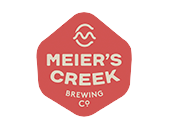Table of Contents
Starting a craft beer business is a passion project for many owners, but keeping it afloat isn’t easy (an understatement, we know). When the growing pains set in, many brewery owners turn to experts like CPAs and brewery consultants to help them get their ducks in a row and make strategic decisions about the business’s future.
Ekos is proud to partner with two such industry experts — CPAs Maria Pearman of Perkins & Co and Chris Farmand of Small Batch Standard — who help breweries and other beverage businesses with accounting, strategic planning, and tax compliance. Both Pearman and Farmand rely on Ekos to facilitate their work with the many customers we have in common, so we chatted with them about their perspective as accounting professionals and how breweries can harness the power of brewery management software to stay on track.
Typical Pain Points: Strategic Planning & Accounting
Brewery owners have certainly upped their game in terms of business acumen as the market has matured, but not every owner is a born-and-bred analyst or strategist. Making decisions about taproom sales or distribution strategy, setting up technology and standard operating procedures, and determining the true cost of finished goods is tough when you don’t have a business background. Even if you do, running a beverage business that relies on accurate inventory is a whole different ball game than managing a tech startup or a service-based business like a marketing firm.
The proper costing of goods is a top reason breweries turn to CPAs like Pearman and Farmand. Digging into that data helps owners understand profitability, which is the key to longevity. But many owners are only looking at the overall margins of the business without diving down to the SKU level to see where they’re winning and losing with individual items. “If you’re only looking at one gross margin number without diving into the details, it really doesn’t cut it in a competitive market,” said Pearman.
The Financial Benefits of an Inventory Management System
A good CPA doesn’t just take your balance sheet at face value — they want to prove every number. If you’re just using spreadsheets to manage your inventory (rather than software) and you only count it quarterly or, worse, annually, your income statement simply isn’t reliable.
“I like companies to use an inventory management system because it provides a source of truth for those inventory values. It helps make your financials much more reliable,” said Pearman.
Spreadsheets are messy and require lots of cleanup by CPAs. All that reconciliation can eat into an accountant’s billable hours. That’s why both Pearman and Farmand suggest integrating your inventory management system (i.e. Ekos) with QuickBooks Online. The automatic sync of inventory and sales data from Ekos to QuickBooks allows CPAs to get past recording debits and credits and go straight into analysis. You can then pay your accounting professionals for useful advice instead of tedious bookkeeping work that can be accomplished more easily by technology.
As a brewery, accurate inventory counts are the foundation of your entire business. Using software like Ekos to keep track of inventory changes as your team goes about their day-to-day routine improves accuracy and prevents a major headache for you (and your CPA) during your monthly inventory closing process.
“I’m not joking when I say 90% of our breweries [who use Ekos] have less than a $5 adjustment each month,” said Farmand. “So, inventory adjustment on the P&L is zero, and when we go to look at the balance sheet items versus what’s in Ekos, there’s less than a $5 discrepancy.”
Using Ekos as a Small vs. Large Beer Producer
Many owners of small breweries wonder if using a system like Ekos is worth it at their size. According to Farmand and Pearman, you can see benefits at any production volume as long as you’re committed to using the system.
“For small producers, the primary value [of Ekos] is having a point of truth for your data and a way to make your financial reports more bulletproof with numbers you can actually rely on,” said Pearman. “And also it becomes a catalyst for developing good habits like monthly inventory counts. The system will force those good habits, which will pay off in the future.”
Farmand suggests identifying one dedicated user on the production side and another who manages logistics or back office operations. Those key users can help hold each other accountable and work out any disparities in data that arise.
“One key point is that those two people can never be the owner,” said Farmand. “The owner of the brewery is so busy — we have found that when this whole process gets dropped in their lap, the process gets dropped, period.”
For larger producers, users are able to move beyond the basics and use the data in Ekos to dive deeper into the product mix and optimize offerings to maximize profitability, says Pearman. As you become a more sophisticated business, you can use the insights Ekos provides to make decisions that impact your bottom line in a big way.
See for Yourself: Get a Demo of Ekos Today
Ready to see what all the hype is about? (We get it, FOMO is real.) Take a 3-minute interactive product tour of Ekos right now, then contact us to set up your personalized 20-minute demo of our software.





